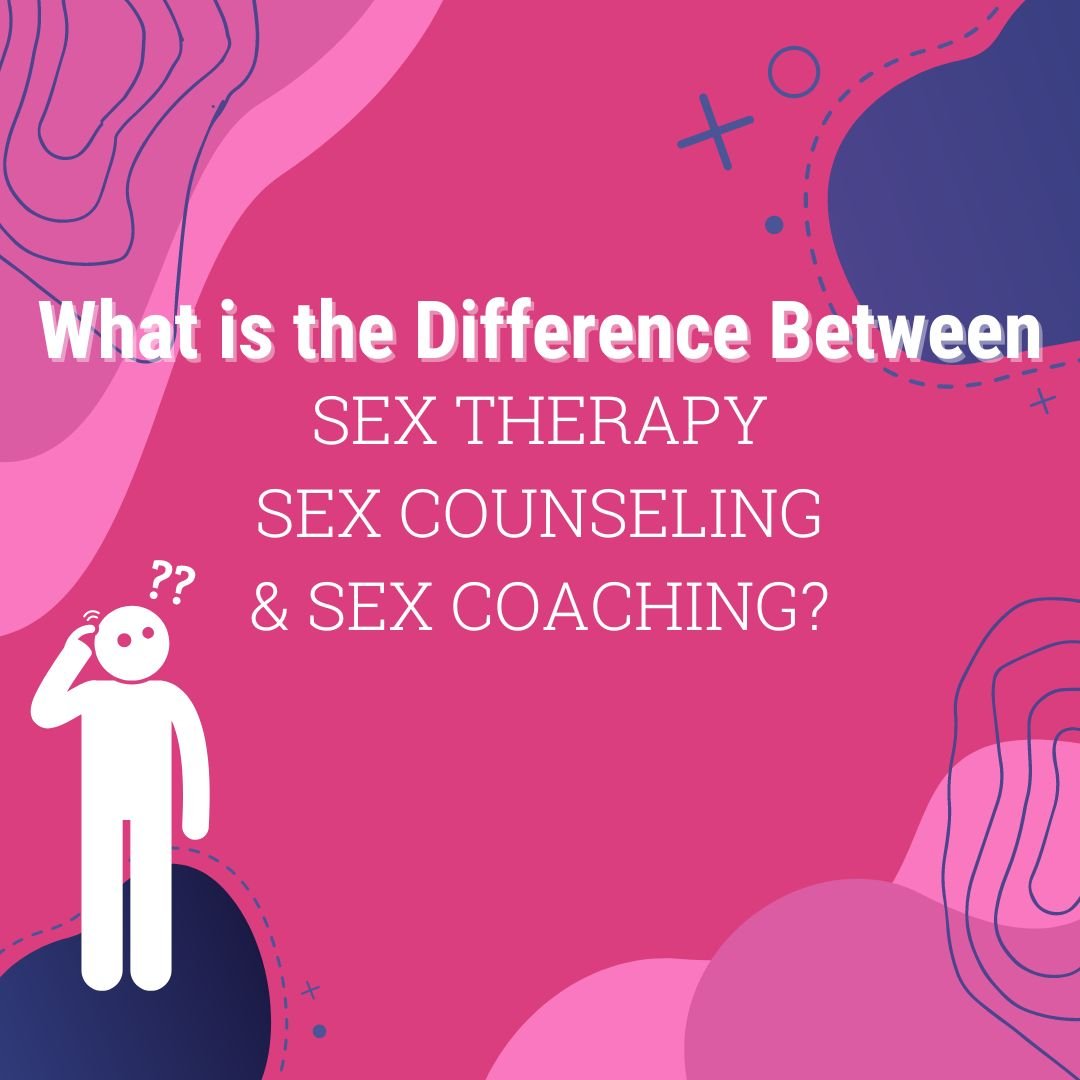When beginning your journey in the sexual health industry, either as a professional or patient, it can be difficult to distinguish the difference between a Sex Therapist, a Sex Coach, and a Sex Counseling. While all three tend to fall under the same umbrella, each position has unique qualifications and specializations.
Sex Therapist: A sex therapist is mental health professional licensed and certified through the American Association of Sexuality Educators, Counselors, and Therapists (AASECT). Their psychotherapy education allows them to assist in short-term and long-term sexual issues. Clients may seek a sex therapist for issues such as vaginismus, sexual trauma, trouble orgasming, and more. Sex therapists work to define sexual problems by providing comprehensive care and resolutions through in-depth sessions and homework.
Sex Coach: A sex coach guides sexuality and intimacy through classes, webinars, support groups, and retreats. Sex coaches don’t provide professional health counseling; they are not mental health specialists - they teach individuals how to understand their sexuality better and improve their sex lives. Clients may seek a sex coach for issues such as discussing boundaries with a partner, how to flirt with individuals, how to enhance sexual pleasure skills, and becoming more aware of sexual desires.
Sex Counselor: A sex counselor is an educational professional licensed through AASECT. Sex counselors can come in many forms such as Planned Parenthood advisors, nurses, school counselors..etc. This is a client-centered practice that focuses on short-term treatment and immediate issues. Unlike therapists, sex counselors focus more on partnerships rather than sexual conditions. Sex counselors provide educational resources and can refer clients to therapists if clients must address their problems over a long period.
All three jobs work together to enhance individuals’ confidence and sense of self sexually. However, there are a few key differences. Sex therapists specialize in mental health; therefore, they work on unpacking the past and present through long-term connections and sessions. Ammanda Major, a sex therapist, defines her occupation, “Sex therapy means bringing a sexual problem into the open but safe space of a therapy session and then beginning to deal with it. What works best is education, communication, and completing the tasks I ask clients to do.”
Sex coaches and sex counselors work more in the present and provide exercises and educational resources to solve issues. A sex coach isn’t required to be certified through AASECT and operates within an independent practice or field. Sex counselors use their AASECT certification in tandem with their other occupations; for example, a school counselor uses their education to help students navigate their understanding of sexuality and sex.
Understanding the difference between sex therapy, sex coaching, and sex counseling is necessary - each provides a unique process for addressing clients' sexual questions and issues.
By Abby Stuckrath




